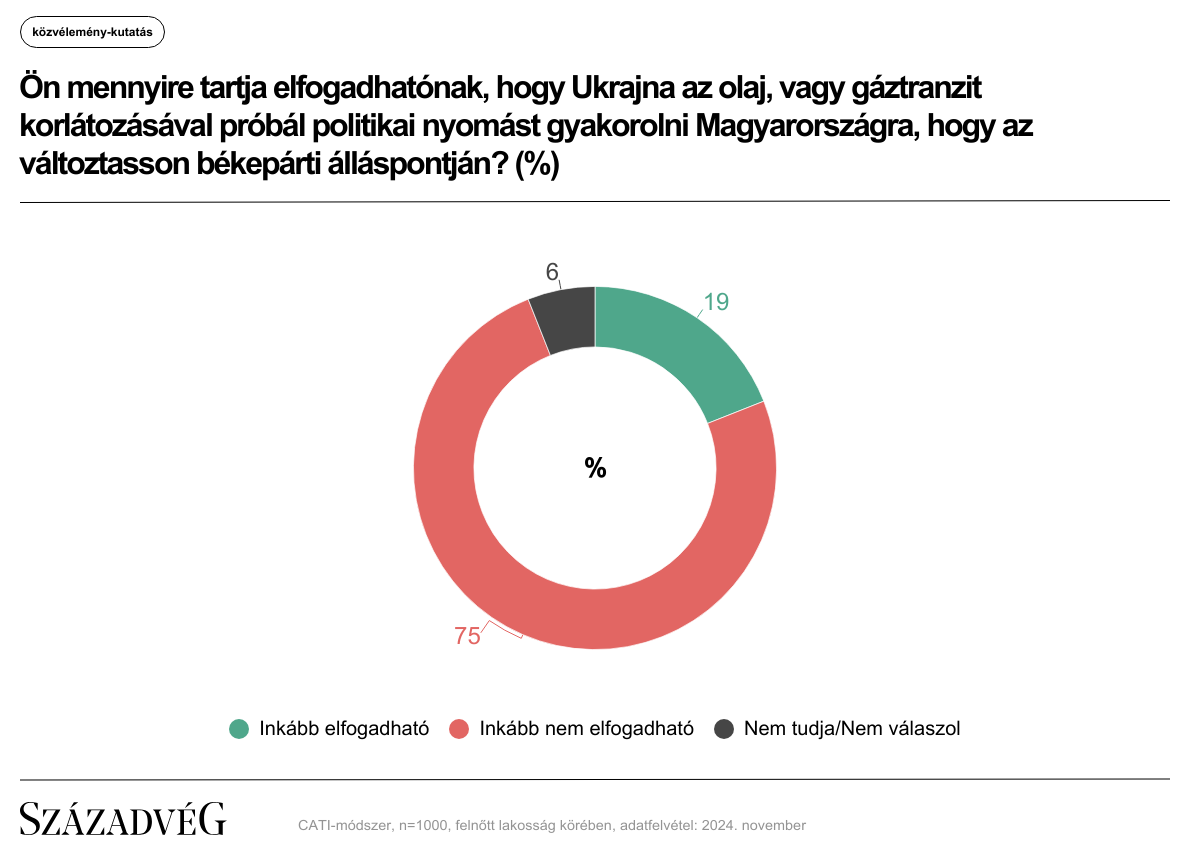
Today, only the TurkStream can transport gas from Russia, which happens to enter the EU through the Hungarian-Serbian border.Continue reading

According to the latest analysis by the think-tank Századvég Foundation, three quarters of Hungarians find it unacceptable that Ukraine is using the restriction of oil and gas transit for political pressure. This is seen in light of the halt of Ukrainian gas transit on January 1, which caused prices to rise again.
After Ukraine did not renew its gas transit contract with Russia’s Gazprom, Russian gas stopped arriving to Europe via Ukraine, causing disruption in many countries, and increasing prices. The halt in the gas transit has reignited the debate about how long the European Union and its Member States can tolerate pro-war pressure from Volodymyr Zelensky, which is causing serious economic damage to the European community, writes Századvég.
According to the EU-Ukraine Association Agreement, the parties cannot threaten each other’s energy security by restricting the export, import, or transit of energy resources.
Yet the Ukrainian leadership has consistently used its position on the energy market to exert political pressure: by sanctioning Lukoil, a supplier on the Friendship pipeline, last summer, and boycotting the transit of the Brotherhood gas pipeline this year, it is trying to impose its pro-war stance on Hungary and Slovakia, emphasized the Hungarian think-tank.

How acceptable do you find it that Ukraine is trying to put political pressure on Hungary to change its pro-peace stance by restricting oil or gas transit? Rather acceptable (19%), rather not acceptable (75%), do not know/no answer (6%) Source: Századvég
In light of recent happenings, Századvég made a survey, asking Hungarians what they think about Ukraine’s recent move.
According to the findings, Ukraine’s efforts are rejected by 75 percent of the Hungarian population.
As Századvég writes, the high percentage is not surprising, given that in addition to large-scale humanitarian aid, both Hungary and Slovakia provide substantial energy assistance to Ukraine in the form of fuel supplies and electricity exports.
The behavior of the European Commission is equally unworthy of the Ukrainian leadership’s attempts to exert pressure. Although Brussels should take action in the event of a breach of the Association Agreement, the Commission has demonstratively sided with Ukraine against the Member States concerned and their citizens. The results of the opinion poll show that the Brussels positions are not only contrary to the interests of the European Union, but also to the expectations of the Hungarian population, concludes Századvég.
Featured photo via Pixabay